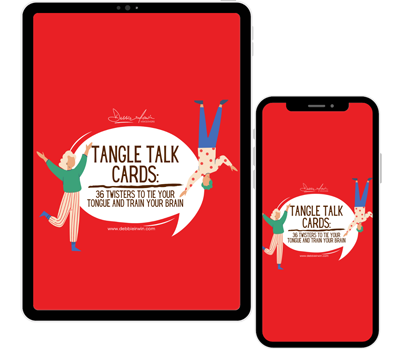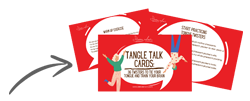Tongue
Twisters
Perfect for voiceover artists, speakers, and anyone looking to have fun!
Your ultimate resource for mastering the art of Tongue Twisters!
Whether you’re a budding voiceover artist or a seasoned narrator, tongue twisters are invaluable tools for honing your diction, improving your articulation, and enhancing your vocal agility. These playful and challenging phrases push the boundaries of your speech capabilities, helping you achieve clarity and precision in your delivery. By incorporating tongue twisters into your daily practice, you’ll find yourself more confident and versatile in your vocal performances, ready to tackle any script with finesse and flair. Join us on this fun and rewarding journey to vocal excellence!
Importance of Tongue Twisters
Tongue twisters are more than just fun linguistic challenges; they play a crucial role in developing effective speech habits. Regular practice with these tricky phrases helps to strengthen the muscles involved in speech production, promoting better control and flexibility. This, in turn, leads to improved enunciation and clarity, essential for effective communication, especially for public speakers. Additionally, tongue twisters are a great way to enhance cognitive agility, as they require quick thinking and precise execution. Embracing tongue twisters as part of your routine can lead to significant improvements in your overall speaking abilities.
Unlock Your Free Tongue Twister Toolkit PDF!
Want to loosen Lips, Liven Up Language, and Communicate with Clear, Confident Clarity?!
Download Debbie Irwin’s Tongue Twister Toolkit by subscribing below!
Perfect for voiceover artists, speakers, and anyone looking to have fun!


Ready for More Fun?

If you’ve mastered the basics, it’s time to level up! Download my Tangle Talk Cards: 36 Twisters to Tie Your Tongue and Train Your Brain
and get:
- Over 3 dozen unique and challenging tongue twisters
- Exercises to prepare your tongue and vocal muscles
- A free audio guide, featuring my voice, to lead you through the warm-up and ensure proper technique and consistency every time you practice
Get the complete set and start twisting your tongue to vocal mastery!
The Toughest Tongue Twister in the World!
According to The Guinness Book of World Records, the toughest tongue twister is ‘The sixth sick sheik’s sixth sheep’s sick’.
But, according to researchers at world renowned Massachusetts Institute of Technology (MIT), one of the most difficult tongue twisters is “Pad kid poured curd pulled cod.”
In their study, the researchers tried to understand whether they could induce double sound mistakes (such as “c” and “t”) with different types of tongue twisters. They recorded volunteers saying a simple list of words such as “top cop” and full-sentences such as “the top cop saw a cop top.”
Stefanie Shattuck-Hufnagel, an MIT psychologist, who along with her team created the phrase, said participants in the study had two reactions when they attempted to say this 10 times fast. They either failed to get through it or stopped talking altogether, Shattuck-Hufnagel said.
Want to give it a try?! Let me know how you do! (Record yourself and send it in for a surprise!)
Hard Tongue Twisters to Challenge Yourself:
Silly Sally swiftly shooed seven silly sheep.
The seven silly sheep Silly Sally shooed
Shilly-shallied south.
These sheep shouldn’t sleep in a shack;
Sheep should sleep in a shed.
All I want is a proper cup of coffee,
Made in a proper copper coffee pot
I may be off my dot
But I want a cup of coffee
From a proper coffee pot.
Tin coffee pots and iron coffee pots
They’re no use to me –
If I can’t have a proper cup of coffee In a proper copper coffee pot
I’ll have a cup of tea.
Amidst the mists and coldest frosts,
With stoutest wrists and loudest boasts,
He thrusts his fists against the posts,
And still insists he sees the ghosts.
Famous People Perform Amazing Tongue Twisters: Danny Kaye, Johnny Carson, Pinky and the Brain!
Danny Kaye in The Court Jester: The Pellet with the Poison’s in the Vessel with the Pestle
Jack Webb and Johnny Carson: Clean Copper Clappers Caper
Pinky and the Brain:
Pronunciation
The International Phonetic Alphabet is a notation system of phonetic symbols based primarily on the Latin alphabet. It was devised by the International Phonetic Association in1886 as a standardized representation of the sounds of human spoken language.
The IPA is considered a roadmap for elements of speech that are part of oral language— phones, phonemes, intonation encompassing all languages spoken around the globe, and also shows the separation of words and syllables.
People across disciplines use this helpful tool: voice, stage and film actors, singers, linguists, speech pathologists, translators, ESL (English as a second language students), foreign language students and teachers and more.
IPA Tools:
- International Phonetic Alphabet: IPA chart with sounds
- International Phonetic Alphabet
- International Phonetic Alphabet: online converter of English text to IPA phonetic transcription
Fascinating blog article:
- A Retrospective into English Phonetic Transcription
- International Phonetic Alphabet Chart
- There are 7 sections to the chart, including consonants and other symbols, vowels, non-pulmonic consonants, diacritics, suprasegmentals, tones / word accents.
Helping you navigate the voiceover world.

Helping you navigate the voiceover world.